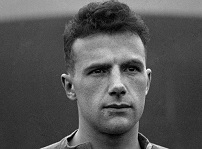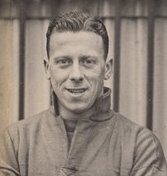Charlie Gee: Stockport, Everton and England
Charlie Gee’s story is one of a remarkable rise from Stockport church football to Everton and England honours. In three consecutive seasons he played Third, Second and First Division football – culminating in a 1932 league championship medal. Charlie also holds the key to the Everton career of one of the most important men in the Toffees’ illustrious history – Harry Catterick. Charles William Gee was born on 6 April 1909 in the Reddish district of Stockport. He was one of eight children born to Edward and Jane Gee. Edward was a sweet shop owner who, as a side-line, also…


